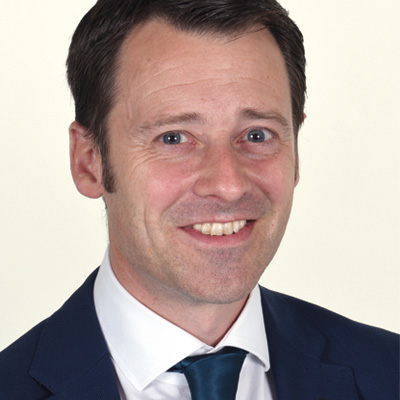
Silas Nicholls
Group Deputy Chief Executive
Manchester University NHS Foundation Trust
Silas Nicholls is group deputy chief executive of Manchester University NHS Foundation Trust. Silas joined University Hospital of South Manchester NHS Foundation Trust in December 2014 as chief operating officer, having previously been deputy chief executive and director of strategy for four years at Wrightington, Wigan and Leigh NHS Foundation Trust. He then held the role of chief executive from November 2016.
A line from the Nuffield Trust chief executive, Nigel Edwards, has stuck in my mind. When asked to comment on the challenges of the chief executive role in the NHS, Nigel said that to be successful in today’s challenging environment you needed to be a lucky genius.
I suspect that many of us may share this sentiment on occasion. So as a recent graduate of the Aspiring chief executive programme organised by the NHS Leadership Academy, NHS Improvement and NHS Providers, has my IQ shot to stratospheric levels and have I become so lucky that I’m barred from entering the city of Las Vegas? Not quite. But has it helped me take on my first chief executive role? Absolutely!
So how has it helped? First and foremost the programme has helped me work on the one thing I can improve: myself. Personal values, resilience, impact and getting under the skin of what makes you tick has been a major feature of my experience of the programme.
By gaining a better understanding of how I come across to others I’ve been able to recognise which behaviours work well and which ones get in the way. This level of insight has allowed new ways of working to emerge. For me, showing more of a human face has helped me deal with some difficult situations and given me confidence in my ability to effect positive change.
Personal values, resilience, impact and getting under the skin of what makes you tick has been a major feature of my experience of the programme.
Secondly, my real ‘Road to Damascus’ moment has been the deep examination of where providers sit in the wider health system and how we need to manage beyond our organisational boundaries to make things happen in complex environments.
To paraphrase President Clinton - it’s all about the system, stupid. The idea that individual institutions can pull up the metaphorical drawbridge, keep their fingers crossed and somehow hope to survive and thrive in a complex and connected world in my view would be laughable if it wasn’t for the fact that this attitude damages services and isn’t in the best interest of the patients and communities we serve.
Health and social care in the 21st century will be defined by how organisations, professions and individuals come together to provide end-to-end solutions to the people who use our services. The role of the chief executive and other senior leaders is no longer the heroic individual but more akin to a conductor or facilitator of an orchestra of talent.
The role of the chief executive and other senior leaders is no longer the heroic individual but more akin to a conductor or facilitator of an orchestra of talent.
Finally the programme encourages you to look at things from multiple perspectives: through the experiences of the patient mentors and staff mentors, as well as through the multiple views and perspectives of the other participants on the programme. It’s not about one view being right or wrong, but how different views challenge your thinking and make you more robust and rigorous in how you make sense of the issues in front of you.
Overall for me the programme was tough, challenging, and at times made me feel downright uncomfortable. But through all of this I have experienced real learning, a growth in confidence and gained a network of friends and colleagues who will be with me throughout my career.
So am I a lucky genius? Well I’m definitely not a genius, but through the Aspiring chief executive programme I’ve developed new ways of looking at and thinking about the world I operate in. While my chances of winning the lottery haven’t improved there is something about practicing what you do. As the golfer Arnold Palmer said: “It’s a funny thing, the more I practice the luckier I get”.

